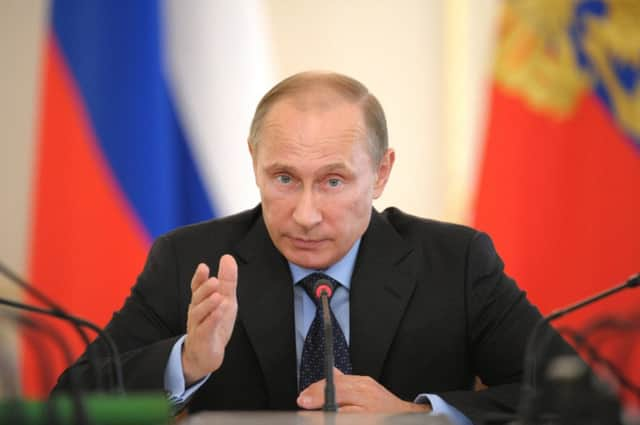Sanctions threat as ceasefire stutters in Ukraine


The upper house of Russia’s parliament fulfilled a request by president Vladimir Putin to rescind the right to invade Ukraine in defence of its Russian speakers granted in March.
However, a leading politician said the power could be quickly restored if required, and western governments indicated they would judge Russia by the progress made in ending the fighting in eastern Ukraine.
Advertisement
Hide AdAdvertisement
Hide AdOn Tuesday, less than 24 hours after a bilateral ceasefire was agreed, rebels shot down a Ukrainian military helicopter, killing all nine on board.
This prompted Ukraine president Petro Poroshenko to tell his troops to return fire if attacked, declaring that he might call off the ceasefire altogether.
A Ukraine spokesman said the rebels had violated the ceasefire 44 times since Monday.
Moscow denies western accusations it has allowed fighters to cross into Ukraine along with heavy weapons to confront government forces, and that it is keeping its troops close to the border to put pressure on Kiev.
But during a meeting of Nato foreign ministers in Brussels, secretary-general Anders Fogh Rasmussen told reporters: “I regret to say that we see no signs that Russia is respecting its international commitments.”
United States Secretary of State John Kerry said Washington was working with its European Union partners, who hold a summit in Brussels at the end of this week, to prepare a new round of sanctions against Russia if necessary.
Foreign Secretary William Hague said that if Russia did not “stop the flow of arms across the border [and] stop supporting illegally armed separatist groups”, the case for tougher sanctions “will of course become stronger”.
The US and EU imposed asset freezes and travel bans on Russian and Ukrainian individuals following Moscow’s annexation of Crimea in March.
Advertisement
Hide AdAdvertisement
Hide AdWashington has also targeted a number of Russian firms and banks linked to Mr Putin or his close associates.
German Chancellor Angela Merkel, Mr Putin, Mr Poroshenko and French president François Hollande held a four-way phone call to discuss the crisis, during which Mr Putin called for the ceasefire to be extended.
Mr Putin had said on Tuesday that Ukraine must follow up the ceasefire with substantive talks to address the rights of Russian speakers. Mr Poroshenko announced he planned to present a bill on increased regional autonomy to parliament on Thursday, but gave no details. However, with public pressure growing for a response to the downing of the helicopter, it was not clear he could keep hopes of a peace process alive beyond this week.
Aleksander Boroday, self-styled prime minister of the rebel Donetsk People’s Republic, who signed up to a ceasefire on Monday, told a news conference in the eastern city of Donetsk: “There is no cessation of fighting. There are numerous ceasefire violations practically along the whole front line… our adversary [Ukraine] is actively redeploying forces.”
The United Nations said last week that 257 civilians had been killed since mid-April. The toll is likely to be higher as many places have not been accessible to international monitors.
Moscow has already cut off gas supplies to Ukraine in a row over prices, and curtailed trade, threatening more restrictions if Mr Poroshenko signs a trade agreement with the EU.